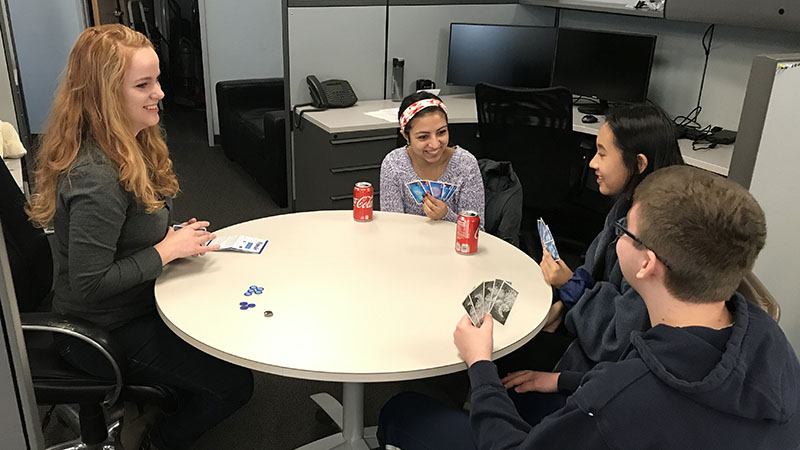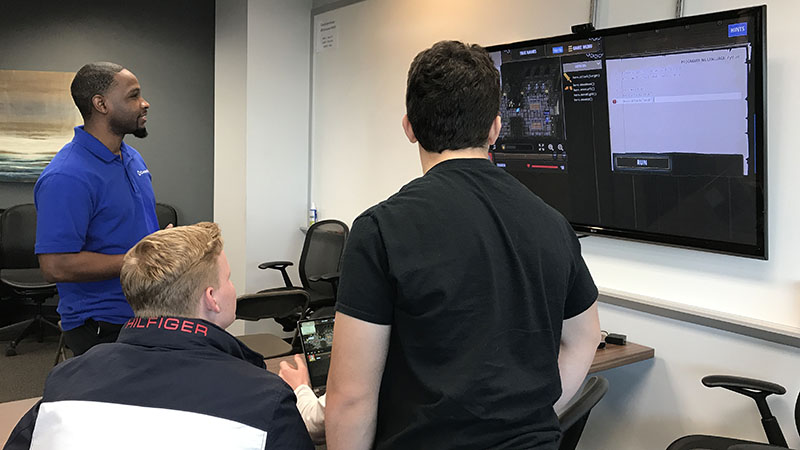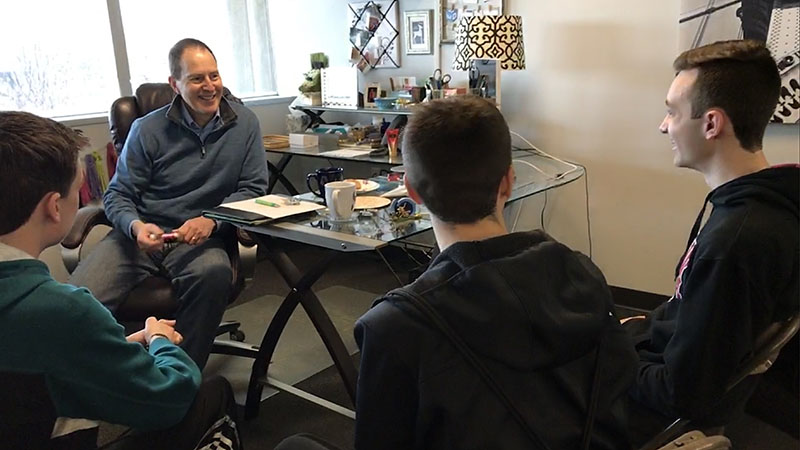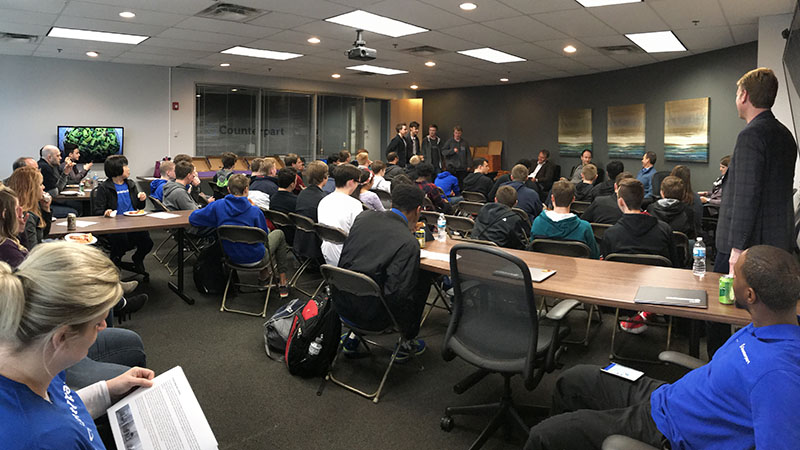A few weeks ago we had the pleasure of hosting a group of computer science students from Hamilton Southeastern High School, a tradition we share with Julie Alano, HSE’s computer science department chair. We fill the day with tech-related activities and incorporate scoring mechanisms into some, to add a competitive element. For the 2018 installment, we added in a Shark Tank-style pitch competition to up the ante.
Here’s a look at how it all went down—
As a group of geeks, we’re always looking for ways to incorporate gaming into our work lives. CodeCombat was a natural fit for our day. The browser-based video game helps players learn and refine computer programming skills. Teams worked to complete as many levels as they could, while Counterpart team members moderated.
They also played one of my personal favorites, the cooperative card game Hanabi, which couples strategic thinking and communication skills with a big dose of collaboration. Teams worked together to build the best fireworks display by playing and discarding cards, with a big caveat: they couldn’t see their own hand of cards.

A few of our developers spent time mentoring groups on their class projects. Though most groups haven’t reached the coding portion of their projects yet, they were able to get expert guidance on the architecture component of development, specifically how to prioritize and construct top-notch databases to power their software. Plus, students were given insight into day-to-day developer schedules, client projects, various roles in software development, software development methodologies, and the idea of minimum viable products.

We were excited to bring in Braylon Hancock, director of innovation at Community Launchpad, the innovation incubator within Community Health Network. Braylon gave students an overview of Launchpad’s mission and insight into some of its initiatives. The students then worked with Braylon to brainstorm needs, metrics and outcomes to answer the question, “How might we create a digital dashboard for your life that is always ‘on’?”
In preparation for the day’s main event, each group also met with experienced venture capital investors. Curtiss Quirin of QuirinCompany, Purdue FoundryX mentor Trent Decatur of WestBridge, and our own Chief Strategy Officer Drew Linn coached the student groups on how to effectively pitch their products. With his groups, Curtiss honed in on three Ps—purpose, passion and profit—to guide pitches.

Over lunch, groups presented their products to our guest panel of investors. Jeb Banner of Boardable joined Curtiss and Trent for the final judgement. For the groups, it was all in the details, as most were looking to build very similar trivia apps. During the Q&A portion of the pitches, the panel pressed the groups to emphasize their points of differentiation. My favorite nugget came from Jeb: figure out what makes your product indispensable to people. Curtiss also made an important revelation that he sometimes invests in the people or team more than the idea.

Our big winner was group #4, which had an impressive Hanabi score of 22! The winners walked away with a Starbucks gift card, Counterpart swag, and most important, bragging rights.
Posted in Youth Mentoring